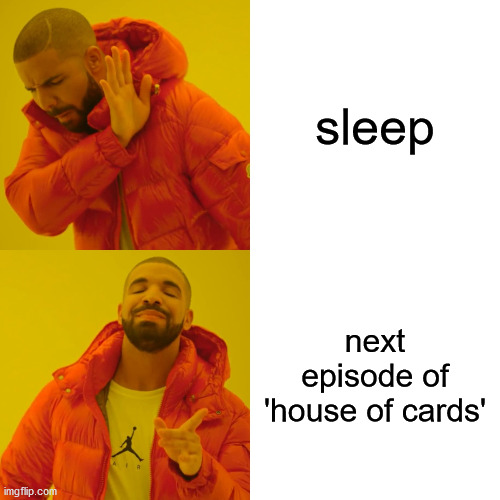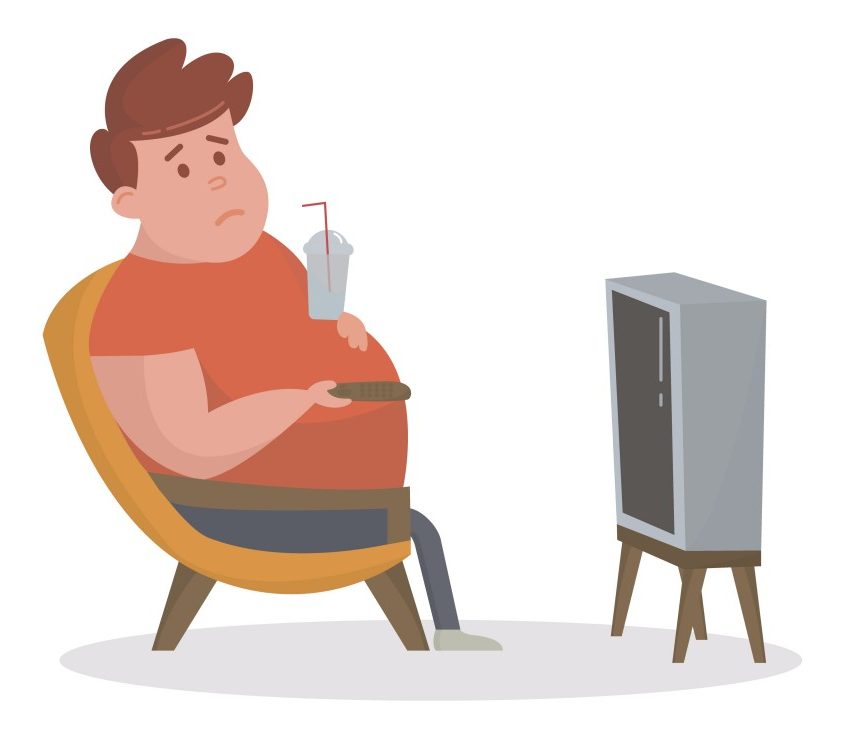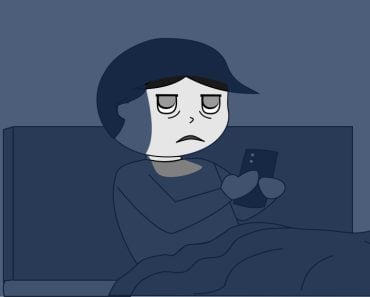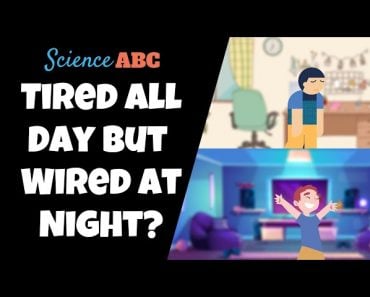Binge-watching can lead to sleep deprivation, an increased risk of obesity, and may be addictive. However, it can also be relaxing and create closeness and community.
In their natural habitat, a binge-watcher is a peculiar sub-species of Homo sapiens. They are solitary and are often found lying on their bed or sofa, still as a rock, peering intently into their laptop or at the TV. They rarely get up, only taking occasional breaks for those insistent calls of nature.
The binge-watcher prefers the dark, so the only light their eyes see is from the screen. Unlike so many others of their species, they don’t sleep at the end of every day. They stay up late and are often found to have red eyes. They get irritated when you interrupt them and do whatever they can to drive distractions away.
This, of course, is an exaggeration, but for many of us, binge-watching a show is how we consume our entertainment diet.
With streaming services bringing seemingly endless content to the tips of our finger, creators tailor their shows to keep us hooked, while their marketing team sells it to us as the next most bingeable (this is now a word. Google it) show, I can’t help wondering if this way of consuming television does us any good.
Is this diet healthy for us and how is this new TV approach changing our bodies and minds? Is binging good or bad?
Recommended Video for you:
The Origins Of Binging
Binge started out to mean “To soak in water a wooden vessel, that would otherwise leak,” (Evan’s “Leicestershire Words, Phrases and Proverbs”) or simply ‘to soak’ in the 19th century Lincolnshire dialect. The word entered the common man’s vocabulary to describe excessive drinking, with the idea that drinkers were allowing their brains to soak in alcohol. Now, we use ‘binge’ to describe anything being consumed or performed in ongoing excess.
Binge-watching entered our lexicon in the 2000s, but we still had to wait a restless week for a new episode to air back then. It took another decade to sort out the tech glitches and iron out any annoying buffering to give us the seamless viewing experience of Netflix, Amazon Prime and others. No more waiting and no more suspense.
The Netflix Effect – Why Do We Binge TV?
Today, we binge-watch anywhere between 2 and 3 hours per day. 63% of US households subscribe to an online streaming service, and 22% of those households stream Netflix every week. Children and teens seems to watch more TV than adults do (Source). Some call this shift the ‘Netflix Effect’, so what exactly is this doing to us?
“Half hours became hours became half days. And outside my window, the world whizzed on” writes Domingo Cullen on how his YouTube watching manifested into an addiction. A quick search will show you a dozen confessions of the ‘Netflix addiction’ and how to recover from it.
The allure of numbing the brain into an endless stream of content is powerful. Experts have been decrying the potential hazards of trying to ‘binge watch a new show in the first 24 hours’, a term Netflix likes to call a binge-racer.
Relating to these characters and their stories activates multiple parts of the brain, many of which scientists don’t fully understand yet, an area that can result in emotional investment and pleasure. “If this gives pleasure, let’s do it some more,” your brain reasons as it instructs you to watch the next episode.

This pleasure results in a release of dopamine in the brain. The main dopamine rush occurs because a neural pathway called the mesolimbic pathway is activated. This neural pathway, involving the limbic system and parts of the midbrain, is commonly called the reward pathway, as it is linked to pleasure, motivation, and fear.
This pathway is commonly at the center of addiction discussions, with some research suggesting that TV addiction might also activate this pathway.
Additionally, one might have to binge-watch for longer to receive the same high or pleasure as before. This is due to the brain getting acclimated to the previously established “watch duration”. So, the pleasure a two-hour binge watch might not be satisfactory anymore.
Most of this research has been done with TV-watching addiction. Whether occasional binge-watching affects the brain similarly requires more research.
Binging TV Causes Sleep Deprivation
Netflix’s CEO Richard Hastings told analysts at a conference, “Think about it… when you watch a show from Netflix and you get addicted to it, you stay up late at night. We’re competing with sleep on the margin.”
A study published in the Journal for Clinical Sleep Medicine found that of their 423 participants, 80% identified as binge-watchers, with an average watch time of 3 hours and 8 minutes per day.

Streaming sites are designed to keep you on the platform for as long as possible, from auto-playing the next episode or immediately displaying recommendations for what to watch next after you’ve finished a show. For the binge-viewer, this results in a significant amount of lost sleep.
We’re advised to get 7 to 8 hours of sleep per day, but staying up all night to finish shows like ‘Breaking Bad’ and ‘The Fall’, which Netflix says are binged the fastest, won’t result in 8 hours of uninterrupted sleep.
And obviously, sleep is important… ask any college student. Sleep is an important time for the body and the brain to recoup after a hard day of work. A lack of sleep can weaken the immune system and affect heart health. It can impair the brain, reducing cognition and its ability to consolidate memory, as well as triggering anxiety and depression. This leads to further stress, worsening the situation.
It isn’t only the amount of sleep we get; the quality matters too! The same study found that those who binged television more often were found to have poorer sleep quality. The mental arousal we get from watching TV (will Jon Snow sit on the Iron Throne?) doesn’t lend itself to peaceful sleep.
Binging TV Can Cause Weight Gain
Sitting and watching TV for 3 hours is great for weight loss, said no one ever, especially not the study conducted by Harvard in 1985 that linked TV watching to obesity in children and adolescents. For every extra hour of TV watched, there was a 2% increase in the prevalence of obesity, the study found. Since then, more research has concluded that too much TV might put both children and adults at risk of obesity.
The more time we veg out in front of the TV, the less we are out and about in the world. We lose out on time that we could be exercising, walking, or just moving our muscles. The weight risk compounds when we consider that most people work at a desk, sitting in front of their computers, so their lives are already quite sedentary.

We might not all be addicted to binge-watching, but some of these symptoms probably resonate. We know people who describe the show they binged over the weekend, even staying up for entire nights to cram it in. The first show I ever binged was Game of Thrones and I could only watch 2 episodes back to back. Now, I have no problem finishing a show with eight, 1-hour episodes in a single sitting.
When Is Binging TV Good?
While it is true that there is growing evidence that binging isn’t good for us, the results aren’t all doom and gloom. Binging, occasionally, might have some benefits.
For many people, binging is a social activity. It gives people something to talk about at parties and with their friends, or even on Twitter. Popular shows have fandoms dedicated to creating theories, fan fiction, and memes. This interaction— mostly online, though sometimes offline through conferences like Comic-Con—can create a sense of community for many. Fans often hold viewing parties where people can binge-watch shows together and then discuss what they just experienced!

For others, binging might just be relaxing. After a long day, a few hours of F.R.I.E.N.D.S.—still one of the most popular shows on any streaming platform—can ease the stress of a long day, literally. A study followed 240 people through their binging and recorded their cortisol levels, the so-called stress hormone. They noted for some people that their cortisol levels decreased during their binging experience.
Conclusion
With binging, there isn’t an objective “good” or “bad” answer. Like many things, the key is moderation.
Watching TV can be relaxing, but only if it doesn’t stop you from exercising, taking care of your health, and fulfilling your social responsibilities. Binge-watching in moderation, once in a while, might actually do some good.
All the evidence presented here reveal two sides—one of anecdotes from individuals that say binge-watching helps them relax or escape for a while from their worldly stress, and the other side of research that shows a correlation between binge-watching and a host of health and wellness problems.
However, correlation isn’t causation. The mental health repercussions of binge-watching might be indicative of other underlying problems, with binge-watching merely being a symptom.
Though it is easy to slip into cycles of chronic watching, there are plenty of ways to come out of it. Seeking professional help, setting an alarm, instructing friends to not encourage Netflix binging together, or simply turning off the auto-play feature (yes, you can do that) can all help.
Researchers have even asked streaming platforms to display a warning to users after a certain number of episodes have been binged.

All things considered, the outcry over binge-watching pales in comparison to many of the other problems in the world at the moment. Now, if you’ll excuse me, I need to get back to watching the latest season of Bojack Horseman.
References (click to expand)
- Shim, H., & Kim, K. J. (2018, May). An exploration of the motivations for binge-watching and the role of individual differences. Computers in Human Behavior. Elsevier BV.
- (1985) Do we fatten our children at the television set? Obesity and .... The United States National Library of Medicine
- Nabi, R. L., Prestin, A., & So, J. (2016, March 16). Could Watching TV Be Good for You? Examining How Media Consumption Patterns Relate to Salivary Cortisol. Health Communication. Informa UK Limited.
- Exelmans, L., & Van den Bulck, J. (2017, August 15). Binge Viewing, Sleep, and the Role of Pre-Sleep Arousal. Journal of Clinical Sleep Medicine. American Academy of Sleep Medicine (AASM).
- Sussman, S., & Moran, M. B. (2013, September). Hidden addiction: Television. Journal of Behavioral Addictions. Akademiai Kiado Zrt.
- Matrix, S. (2014). The Netflix Effect: Teens, Binge Watching, and On-Demand Digital Media Trends. Jeunesse: Young People, Texts, Cultures. Project Muse.













